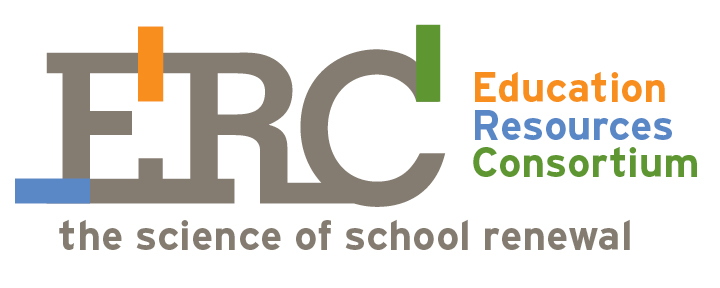In 2018, the ERC team was pleased to be at the forefront of rethinking how we could organize student learning in our schools, i.e., the “curriculum”, moving away from a second-hand, 150-year old organizational approach to a more compelling way to engage young people. We explained one way that overdue change might be accomplished in this Grand Challenges newsletter. (Check out the comments people added at the bottom of that post, by the way.)
Since then our ERC Grand Challenges Network has provided teachers and students in a wide swath of schools with opportunities to explore urgent topics while offering meaningful choices to engage in deep learning. If you’re not familiar with these ideas, it’s worth repeating where the Challenges came from and why, and to note that now there has been a new and significant development.
The journey began when I had a breakthrough moment -the good fortune to read a brief yet especially thoughtful article, “Synergies”, by G. Wayne Clough, then Secretary of the Smithsonian Institution. As Clough said at the time, “Our age has seen an explosion of experts in hundreds of disciplines, all creating huge amounts of specialized knowledge, which ricochets instantaneously around the world over the Internet.” How can we make sense of it all?
His insights into the urgency of organizing human thinking in a collective effort moved and excited me just as they had inspired his colleagues and collaborators at the Smithsonian. His notion was to have Smithsonian teams seek out like-minded global partners at universities, nonprofit organizations and government agencies willing to tackle high-risk/high-return problems and address them collaboratively within a framework that could make a difference.
G. Wayne Clough
Finally, here was a way of making sense of our intellectual efforts, our potential as social and thinking creatures, and doing so in a way to make for a better planet and a better “civilization”. The Grand Challenges presented themselves immediately to me as a framework for re-igniting the passion and curiosity kids bring to the early grades but which are mainly lost as they learn to conform and to please, solving tired, predetermined puzzles. Here is a framework that can help us dig out from under the glut of competencies, one-size-fits-all “do-now’s” and “exit tickets”, etc. that no one wants to come to grips with, but which continues to turn students off to classroom learning.
As initially conceived, the Challenges framework was four-fold:
· Unlocking the Mysteries of the Universe
· Understanding and Sustaining a Biodiverse Planet
· Valuing World Cultures
· Understanding the American Experience
Now, the Smithsonian has added a fifth Challenge to its framework for study and examination: “magnifying the transformative power of the arts and design”. In their description, they ask us to explore “how the arts and design improve the lives of individuals and communities, how they have served as means for people and communities to express and share values and ideas, and how the creative process can help all people experience our shared humanity.”
Our many friends in the worlds of design and the arts are pleased and excited at this truly significant, perhaps overdue, recognition of those fields as central and vital, occupying a critical place in human learning and understanding. Interestingly, if one looks back at the long list of previous ERC Grand Challenge Network topics, it’s clear that many of them have honored and explored those very issues.
Here are a few links to people doing interesting things in those worlds of design and
the arts:
Kristina Lamour Sansone: designeducator.com/sources
Oscar Palacio: oscarpalacio.net
Terrapin Bright Green: terrapinbrightgreen.com/reports/14-patterns
516 ARTS: 516arts.org
We look forward to including this new Challenge in our network activities and conversations. The collective energy associated with this new development increases our hope that people can begin to slowly put aside our tired approach to “curriculum” and replace it with explorations and activities that use the Grand Challenges as a framework for learning, activities that erase some of the unhelpful boundaries and structures that inhibit passionate learning. Whether you use the Challenges in an existing unit of study, as a larger scaffold, as an alternating curriculum, or as your basic framework, you’ll be helping us move the dial.
Larry Myatt
Co-Founder,
Education Resources Consortium
Take a look at the full five Grand Challenges here: si.edu/about/mission
For more information or to be a part of the ERC Grand Challenges Network, email us at larry@educationresourcesconsortium.org.





